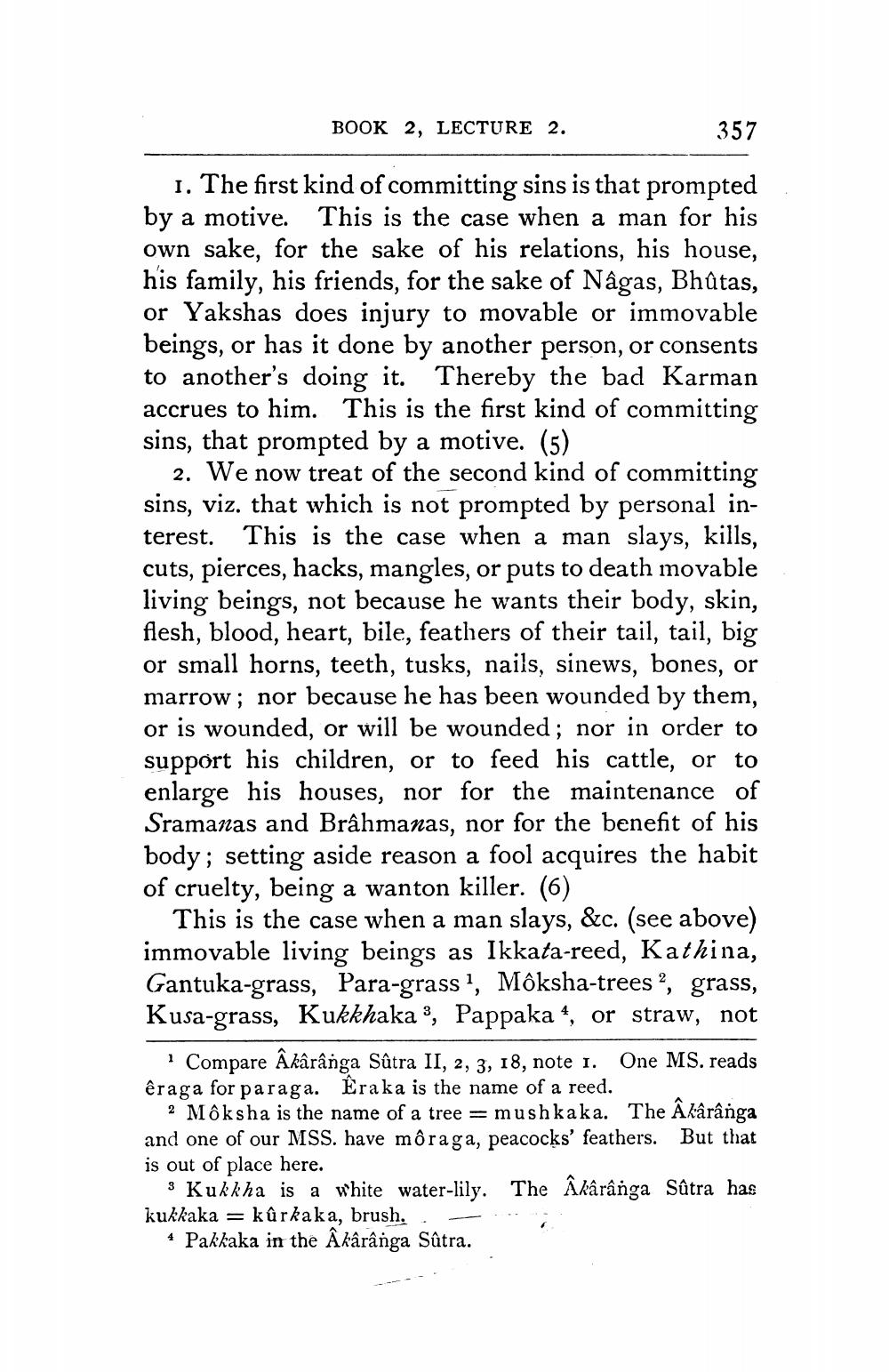________________
BOOK 2, LECTURE 2.
357
1. The first kind of committing sins is that prompted by a motive. This is the case when a man for his own sake, for the sake of his relations, his house, his family, his friends, for the sake of Nâgas, Bhûtas, or Yakshas does injury to movable or immovable beings, or has it done by another person, or consents to another's doing it. Thereby the bad Karman accrues to him. This is the first kind of committing sins, that prompted by a motive. (5)
2. We now treat of the second kind of committing sins, viz. that which is not prompted by personal interest. This is the case when a man slays, kills, cuts, pierces, hacks, mangles, or puts to death movable living beings, not because he wants their body, skin, flesh, blood, heart, bile, feathers of their tail, tail, big or small horns, teeth, tusks, nails, sinews, bones, or marrow; nor because he has been wounded by them, or is wounded, or will be wounded; nor in order to support his children, or to feed his cattle, or to enlarge his houses, nor for the maintenance of Sramanas and Brâhmanas, nor for the benefit of his body; setting aside reason a fool acquires the habit of cruelty, being a wanton killer. (6)
This is the case when a man slays, &c. (see above) immovable living beings as Ikkata-reed, Kathina, Gantuka-grass, Para-grass !, Môksha-trees?, grass, Kusa-grass, Kukkhaka 3, Pappaka 4, or straw, not
Compare Âkârânga Sûtra II, 2, 3, 18, note 1. One MS. reads êraga for paraga. Eraka is the name of a reed.
2 Môk sha is the name of a tree = mush ka ka. The A kârânga and one of our MSS. have môraga, peacocks' feathers. But that is out of place here.
3 Kukkha is a white water-lily. The â kârânga Sûtra has kukkaka = kûrkaka, brush.
4 Pakkaka in the Akârânga Sûtra.




